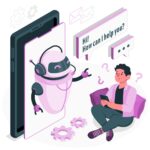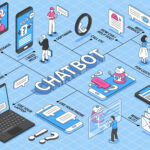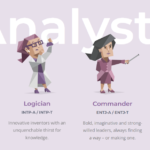Recently, companies like Apple, Samsung, and Amazon have prohibited their employees from using ChatGPT due to concerns of data leakage. Google has also warned its employees to use chatbots with caution. However, instead of simply forbidding or limiting the use of generative AI services, many tech giants are now developing internal generative AI services for their employees.
The innovative applications of ChatGPT technology have been captivating the world, making this year the official year of generative AI. AI technology has not only led to revolutionary changes in various industries, but companies have also been pouring in resources to integrate AI technology into their services.
After the launch of generative AI, many enterprise employees have utilized AI technology to make their work more convenient, fast, and efficient. However, this has also caused internal data and confidential information leakage, becoming a significant cybersecurity issue that companies are currently concerned about.
To effectively enhance employee work efficiency with AI while ensuring that company information does not leak, many companies are “building their own” generative AI services for internal use.
These companies are creating internal generative AI playgrounds, allowing employees to explore to their hearts’ content.
The world’s largest retailer, Walmart, has created a “Generative AI Playground” where employees can freely explore and learn about new AI technologies while ensuring the safety of the company’s internal data.
Walmart’s “Generative AI Playground” interface also shows that employees will learn the best things from making mistakes, and this tool will allow employees to “try how to use generative AI safely without risking data leakage.”
Meta has also created an AI chatbot that uses the company’s internal data called “Metamate” and allows employees to create their “prompt” and share it with colleagues. However, it is currently only open for testing to internal groups, including different functions such as meeting summaries and coding.
CEO Mark Zuckerberg said that Meta is also trying to incorporate generative AI technology into all products, including large language model-driven AI assistants that have unique roles and skills to offer assistance and entertainment to people.
LinkedIn’s “Generative AI Playground” is an internal developer sandbox that allows internal engineers to use advanced generative AI models from OpenAI and other sources to explore LinkedIn data. LinkedIn also held its largest internal hackathon ever with thousands of participating engineers, encouraging internal employees to engage in deeper exploration.
According to foreign media reports, Samsung Electronics is expected to launch AI services for internal use this year. It is currently developing a large language model to provide data search and translation for the chip business department employees and plans to launch the basic service in December. This AI system is expected to support nine key areas, including product procurement, cost management, data search for chip production, data analysis, and other administrative work such as translating and organizing internal meeting records.
The finance industry still prohibits employees from using generative AI.
AI is set to bring comprehensive changes to various industries, including 5G networks, global data center infrastructure, and the industrial sector. These industries are shifting towards accelerating computing and innovative applications brought by generative AI. Recently, NVIDIA CEO Jensen Huang stated in his keynote speech at COMPUTEX that “the world’s most valuable companies need customized generative AI models.”
While some companies prohibit internal employees from using generative AI tools such as ChatGPT due to cybersecurity issues, industries are increasingly realizing the necessity of building custom AI models in this global AI wave. While AI may bring many challenges to companies, one thing is certain: the world has officially entered the era of generative AI.








